Spain Summons Iran’s Ambassador To Protest Violent Crackdown

Spain summoned the Iranian ambassador Wednesday to convey Madrid’s “absolute condemnation” of the Islamic Republic's violence against peaceful protestors.

Spain summoned the Iranian ambassador Wednesday to convey Madrid’s “absolute condemnation” of the Islamic Republic's violence against peaceful protestors.
Spain summoned the Iranian ambassador Wednesday to convey Madrid’s “absolute condemnation” of the Islamic Republic's violence against peaceful protestors.
According to a diplomatic source on Wednesday, “The foreign ministry has summoned the Iranian ambassador in Madrid to express its objection over the repression of the protests and the violation of women’s rights.”
Spain, in particular, expressed its "abhorrence of the violence against Iranian women and their rights,” read a foreign ministry statement.
The Spanish ministry also urged Iran to carry out "an independent investigation (into the bloodshed) and to establish responsibility in a transparent, objective and thorough manner" while "ending all arbitrary arrests" of journalists and other citizens exercising their civic freedoms.
On Monday, Germany called in the Islamic Republic’s envoy in Berlin over Tehran’s heavy-handed crackdown on the popular protests, triggered by the death of Mahsa Amini, the 22-year-old Kurdish girl who died due to several blows on her head in the hands of hijab police.
On Sunday, the EU foreign policy chief slammed Iran’s handling of protests as unjustifiable and unacceptable, hinting that the European Union may issue sanctions over the crackdown.
In a statement on behalf of the EU, Josep Borrell,called on the Islamic Republic “to immediately stop the violent crackdown on protests and ensure internet access, as well as the free flow of information.”
“The European Union will continue to consider all the options at its disposal ahead of the next Foreign Affairs Council, to address the killing of Mahsa Amini and the way Iranian security forces have responded to the ensuing demonstrations,” read the statement.

Iranian activists are campaigning for nationwide strikes as a next step in their protests, while student in two dozen universities say they will boycott classes.
The “NationwideStrikes” hashtag has started trending on Twitter since Tuesday. Campaigners say protests against the regime will only succeed if businesses, students and civil servants go on strike and paralyze the system as they did in the Revolution of 1979 which overthrew the monarchy.
In the past few days student groups in many universities have issued statements saying they will refuse to attend classes in protest to the arrest of their classmates and others on the streets, and violation of their right to peaceful protests. Students have also urged their professors to condemn government violence and boycott classes until all detained students are freed.
A statement issued by a group of students at Tehran Medical Sciences University condemned government violence against protesters and use ambulances for transporting security forces and detainees in the protests.
The Iranian academic year started September 23, but authorities have cancelled all classes at several major universities this week including Tehran University. Monday and Wednesday were also public holidays in Iran where the week starts on Saturday, but these have not stopped students from staging big rallies on campuses.
Authorities have offered online classes although the government has shut off or slowed down internet access since the protests began nearly two weeks ago and have also arrested dozens of students on campuses and at their homes.
Students often chant “Women, Life, Freedom” -- which has become the signature slogan of the protests -- and demand the release of all political prisoners, freedom, and even shout against the regime and its Supreme Leader Ali Khamenei.
On Wednesday students protesting at Shiraz Medical Sciences University complemented the signature slogan with a new one: “Men, Homeland, Progress”. They also chanted “We Will Fight, We Will Die, We Will Take Iran Back!” as well as slogans against clerics. Students chanted “Scoundrels, Scoundrels” when security forces attacked their rally and booed them.
Political figures, including Iran's exiled Prince Reza Pahlavi, artists, and activists abroad have also been encouraging strikes aimed at toppling the Islamic regime.
Unlike 2019, the Revolutionary Guard (IRGC) has so far not been directly deployed on the streets, leaving the matter to the Police and it's anti-riot units to deal with protesters in over 100 cities and towns across the country.
Protesters have waged a war of attrition against the security forces by protesting mainly in smaller groups, much like flash mobs, in various neighborhoods every night. Tehran police have been deployed "24 hours a day" and many have had little sleet, said the Iranian judiciary chief, Gholamhossein Mohseni Ejei, during a visit to the headquarters of Tehran Police Sunday, in a video posted by the Judiciary’s official website, Mizan Online.
Rumors abound that Khamenei is seriously ill and some claim that his health situation has prevented the security forces from using a heavier hand to quell the protests.
Khamenei who has not appeared in public since September 21 did not make any mention the protests in a speech to military commanders and to the death in custody of Mahsa Amini, the young woman whose death sparked the demonstrations nearly two weeks ago.
The uprising has already affected the livelihoods of millions of Iranians who run online businesses or use Instagram. Authorities blocked access to Instagram, the only major social media platform not blocked in Iran before the protests, and have consistently resorted to intermittent internet blackouts to prevent people from communicating and sharing footage of protests.
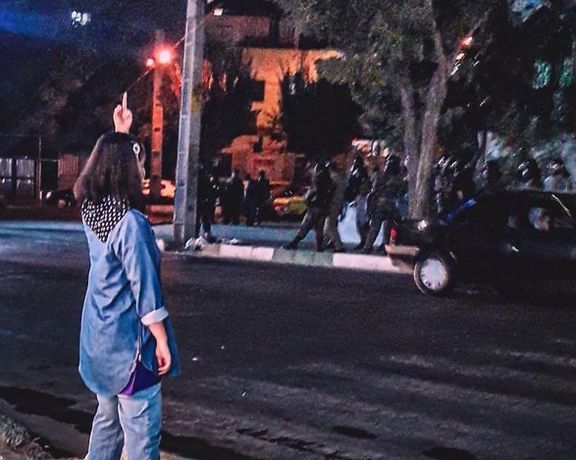
Human rights group Amnesty International has launched a petition to set up an independent UN probe into the Islamic Republic’s killings and crackdown of protesters.
Amnesty has called on the international community to take action now, urging everyone to sign the petition and call on states to set up an independent UN mechanism now to investigate and ensure accountability for the most serious crimes under international law in Iran.
International reactions are coming everyday over the nationwide protests sparked by the death of 22-year-old woman, Mahsa (Zhina) Amini, who was mortally wounded in the custody of hijab enforcement police. An eyewitness told Iran International that Mahsa had told her in a detention room that an officer had hit her on the head.
On Wednesday, the UN Secretary General’s spokesman said, "We are increasingly concerned about reports of rising fatalities, including women and children, related to the protests across Iran,” calling for “prompt, impartial and effective investigation" into Amini’s death.
The Australian foreign ministry said in a statement, “The Australian government condemns the deadly and disproportionate use of force against protesters in Iran, following the tragic death of Mahsa Amini.”
“We have raised concerns into circumstances surrounding her death in custody with the Iranian Embassy in Canberra,” it added, saying, “We’re alarmed by reports that dozens of people have been killed and many more injured, including teenagers, during heavy-handed measures Iranian authorities have implemented to crackdown on the protests. We call on Iran to exercise restraint.”
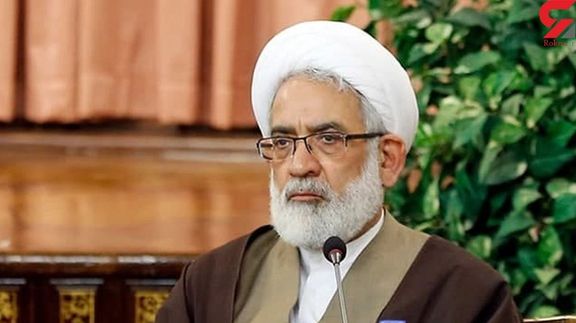
Iran’s Judiciary has issued a directive to courts to act “decisively” and issue harsh sentences to many of those arrested during the ongoing anti-regime protests.
The general Prosecutor’s office headed by a notorious hard-liner cleric; Mohammad Jafar Montazeri issued the directive while thousands have been arrested since September 16 when the first protests began in Iran. At least 3,000 are in detention according to some estimates, but the true number may never be disclosed.
In the previous round of antigovernment protests in November 2019, around 10,000 people were arrested and many faced summary trials without due process of law, without their own lawyers and behind closed doors.
Montazeri’s directive to courts in of itself is an oxymoron, since he is the prosecutor, not chief justice or minister of justice. Iran’s legal system is based on a convoluted and improvised interpretation of Islamic Sharia, where there is no clear distinction between the prosecution and courts. The latter are controlled by the Judiciary, an extensive bureaucracy which also arrests people and directs prosecutors.
The Judiciary in turn is under the direct control of Supreme Leader Ali Khamenei who has ruled the country for the past 33 years. Judges and prosecutors are all appointed by the chief of Judiciary, an official handpicked by Khamenei.
Montazaeri in his directive offers some leniency toward those whose participation in the protests cannot be evidenced by prosecutors and courts, and who have no prior record, including activism on social media. Even this token measure of leniency can be meaningless since prosecutors routinely claim to have evidence and judges rarely dispute them.
But when it comes to those that the regime considers protesters, Montazeri’s directive is harsh.
“Those who have killed or wounded security agents, or destroyed public and private property, those who have attacked military and police centers, those with a record of taking part in previous unrest, thugs and criminals who have encouraged rioters, and foreigners who have been involved in protests should be held in prison until the court convenes and maximum punishment should be requested for them if there is evidence about what they did.”
In one paragraph the directive clusters together a wide range of real crimes with expressions of political dissent and demands maximum punishment.
Clashes have taken place between protesters and security forces, who have so far killed dozens of people. Some police and anti-riot troops have been wounded or even killed and this can be easily considered a crime. But the judicial system will use these charges against any protester it wants, with no recourse to a fair trial or appeal.
The directive also allows prosecutors to hold any person indefinitely and past instances show that torture and pressure will be freely used to extract self-incriminating confessions.
The Islamic Republic rarely issues permit for rallies, except to its own supporters who do not need a permission anyway. Therefore, all antigovernment protests can be deemed illegal, and protesters can be confronted by security forces and plainclothes Basij militia armed with clubs, knives and guns.
Often, protesters have no other choice but to defend themselves against the police and Basij members who come to disperse and stop rallies.
Montazeri’s directive is also aimed at intimidating a new generation of protesters who have not been cowed after more than ten days of daily confrontations with security forces.
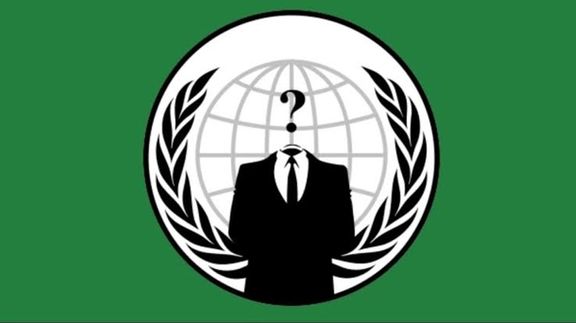
Hacktivist group ‘Anonymous’ that has focused its cyber operations on Iran since the popular protests started earlier this month, says it has made many state accounts inaccessible.
The group claimed on Tuesday that it accessed many government accounts and made them inaccessible, without providing any details about how they can prevent the government from accessing its own money.
The group said it will protect the money because it belongs to the Iranian people. The only way the government can be denied access to its money is if the funds are transferred abroad, which is unlikely given Iran’s lack of international banking ties.
During the past few days, Anonymous has hacked several Iranian banks, including Melli and the Sepah banks – the latter linked to the country’s Revolutionary Guard -- as part of its ongoing operation against the government of Iran in solidarity with the popular protests triggered by the death in custody of the 22-year-old woman Mahsa Amini.
The group also claimed it had hacked the database of Iran’s parliament and the Supreme Audit Court, releasing the phone numbers and other data of all lawmakers.
The group also attacked the official website of Iran’s Supreme Leader Ali Khamenei last week. Both the Persian and English versions of Khamenei’s website are still down.
The group has also disrupted the IRGC-affiliated Fars news agency and the news website of the state broadcaster.
If the government blocks the people from accessing the Internet, Anonymous will block the government’s access, the group has said.
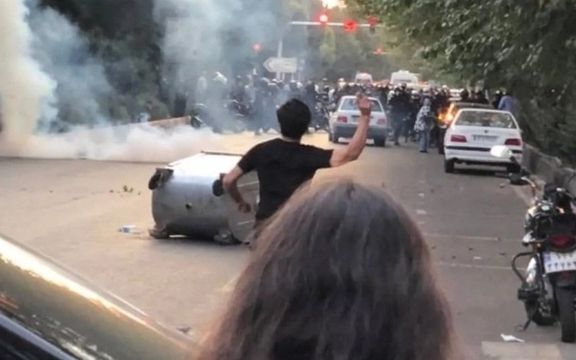
Iran's state television has opened its doors to some reformists who are allowed to make hygienic comments about the uprising by the country's youth and women.
But the tightly controlled broadcaster always juxtaposes the reformists with staunch hard-liners who offer counterarguments to the reformists' shy statements about why the system needs to open up to survive.
Even some of the reformists who have taken part in the debates on the Iranian state TV, have said in interviews with relatively independent media outlets in Iran that the state TV's openness is questionable.
Sadeq Zibacalam a usual suspect on Iranian media and foreign-based televisions to comment on almost everything during the past 30 years, has said in an interview with Didban Iran website that "state TV officials' behavior is authoritarian. Like all authoritarian regimes, the state TV also never acknowledges that there might be flaws and weaknesses in the system."
He added that "the grudge and hatred that has been accumulated in the Iranian society over the years is [partly] due to ignoring these weaknesses." He added that the state TV which operates under Supreme Leader Ali Khamenei "has never had a realistic approach to ongoing developments during the past 43 years."
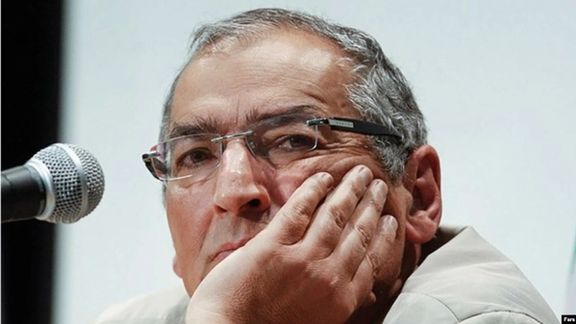
Accordiong to Didban Iran, many observers have been recently criticizing the state TV “which is no longer the point of reference for news and information for the people of Iran." In fact, government media has long ceased to be credible and instead people rely on Persian-speaking broadcasters, such as Iran International and Manoto TV for news and views.
"Just like the government, the state TV attributes the protests to US conspiracies and the actions of Zionists, monarchists and rioters," said Zibakalam, adding that the state TV is part of the Iranian government. It is no surprise as the chairman of the television, Payman Jebelli has reiterated time and again that it is the government's not the people's media. He further added that the state TV does not have any plan to help the regime get out of the current crisis.
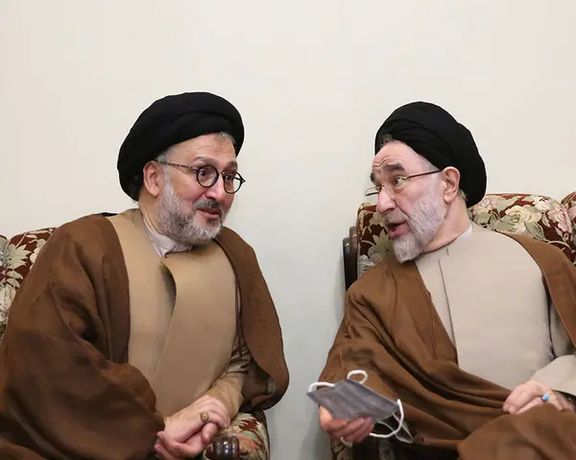
Meanwhile, Mohammad Ali Abtahi, a cleric who was former President Mohammad Khatami's chief of staff in late 1990s and early 2000s, said in an interview with Didban Iran that "the state TV's new approach of openness is temporary." He added that some ruling hard-liners say that putting one step back from their uncompromising positions might lead to a domino-like collapse of the system.
Abtahai, who was the head of the Iranian radio in the late 1980s and early 1990s, said, "I believe the open debates that are currently taking place on the state TV might not continue."
Some in the Iranian government believe that hard-liners should not put even one step back from their positions as a result of the protests that followed Mahsa Amini's death in custody, Abtahi argued. This school of thought does not tolerate dialogue, he added. "The other school of thought is reformism. Those who believe in this maintain thatwrong approaches could be corrected in a step-by-step approach," he said. However, he added that social pressure can force hard-liner officials to make compromises about some of their "principles".
However, critics of reformists say that more than two decades of a step-by-step approach has made matters worse and hard-liners more dominant in the government.
Two days after comedian Mehran Modiri belatedly expressed support for the protests, the state TV announced that it has cancelled his talk show, in a sign of intolerance.